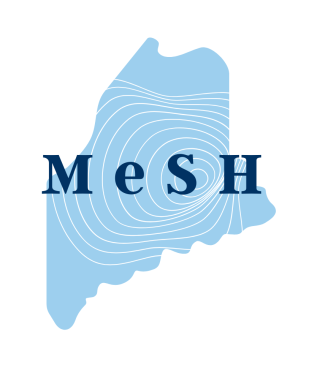Wabanaki Center
The Wabanaki Center is committed to building and sustaining a mutually beneficial relationship between the University of Maine and Native American communities through the exchange of resources and knowledge. It exemplifies the University of Maine’s commitment to “a multicultural and pluralistic educational community that encourages the full participation of all of its members.” The Center is a gathering place for indigenous scholars engaged in advancing Wabanaki studies through teaching, research, and publication. The Center will also engage in Native American student development, providing support for the achievement of their academic career and personal objectives. For more information, please contact 207-581-1417, jennifer.bowen@maine.edu, or 5717 Corbett Hall, Room 208, Orono, ME, 04469.
The Wabanaki Center strives to develop a better University community understanding of traditional and contemporary Native American cultures through education and works closely with the Native American Studies Program, which offers an interdisciplinary academic course concentration and values Native approaches to learning, teaching, and understanding. Wabanaki studies will have access to the resources to research and create teaching and learning environments and tools that reflect and honor indigenous epistemologies. By developing appropriate Wabanaki curricula, we can reach and teach a diversity of students engaged in lifelong learning. Support for Native community development efforts will naturally arise from partnerships between students, faculty, tribal communities and other organizational collaborators. The Wabanaki Center seeks to enhance awareness of Native Americans through its participation in campus-wide efforts to promote cultural diversity, and through its significant contributions to the development of University curricula and programs.
Tuition Waivers and Room and Board Grants
The Native American Waiver and Education Program helps to pay tuition and University fees for eligible students. To be eligible, students must be accepted for enrollment at a UMaine campus and be a member of a tribe or child of a tribe member. The Native American Room and Board Grant Program is a need based award for qualified Native American students living in a residence hall. To be eligible, students must qualify for the Native American Waiver and Education Program, must be enrolled in a minimum of 12 credits as an Undergraduate, 9 credits as a Graduate student at USM, or 6 credits as a Graduate student at UM, maintain good academic standing, complete the FAFSA form, and NOT have access to a permanent residence within commuting distance. Students will need to provide various documents to apply to either program. More information about these resources and eligibility can be found on the Wabanaki Center website.
Wabanaki Leadership Institute
The Wabanaki Leadership Institute (WLI) provides tools, resources, and knowledge to existing and emerging Wabanaki spiritual, government, policy, academic, health, artistic, and public leaders. The WLI is a 2-year fellowship program providing intergenerational leadership training for members of the Wabanaki Nation. The first year is an intensive learning period and the second is practical experience. Instructors will come from diverse areas of expertise such as tribal historians, traditional wisdom keepers, elected tribal chiefs and representatives, educators, and economic development directors who have significant experience and success within their fields. During the second year, participants will select a community service by using a traditional consensus model. They will create or improve a program that meets a critical need of a Wabanaki community. They will receive guidance related to outlining strategic plans, short and long term goals, staffing, and funding of the project. The primary goals are to create well-trained, competent, and culturally grounded Wabanaki leadership, and establish a network of experienced and cooperative leaders. For more information about the Wabanaki Leadership Institute, contact um.WabanakiLeadership@maine.edu or 207-581-4459.
Fellows will attend these core classes:
-Traditional Wabanaki Governance
-Core Cultural Values
-Native Nation Building
-Environmental Responsibility
-Culturally Relevant Economic Development
Additional training areas:
-Contemporary legal issues facing Indigenous Peoples
-History of interactions between Wabanaki Nations and State and Federal government
-Practices and protocols to engage in the political system
Wabanaki Youth in Science (WaYS) Internships
The Wabanaki Center is involved with various WaYS programs including mentorship programs, student collaborations, and involvement in ecological surveys and research programs. Relevant programs have involved wood turtle populations, coastal shell middens, and marine sedimentation. More information about program details and how to get involved can be found on the Wabanaki Center website.


